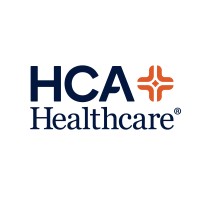
Planned Parenthood Los Angeles Company Cyber Security Posture
plannedparenthood.orgThe mission of Planned Parenthood Los Angeles is to provide convenient and affordable access to a comprehensive range of quality reproductive health care and sexual health information, through patient services, education and advocacy. Planned Parenthood Los Angeles is the largest provider of reproductive health care services in Los Angeles County. We provide health services to nearly 120,000 women, men and teens in Los Angeles County each year, 93% of whom come to us for family planning services, and 72% of whom are at or below the federal poverty level. Planned Parenthood Los Angeles' health care professionals create a non-judgmental, relaxed environment for our clients. All of our services are safe and convenient administered through our health center locations and two Planned Parenthood Basics throughout LA County. Please visit our website at pplosangeles.org
PPLA Company Details
planned-parenthood-los-angeles
310 employees
3285
62
Hospitals and Health Care
plannedparenthood.org
Scan still pending
PLA_8377056
In-progress
Between 800 and 900
This score is AI-generated and less favored by cyber insurers, who prefer the TPRM score.
 PPLA Global Score
PPLA Global Score.png)

Planned Parenthood Los Angeles Company Scoring based on AI Models
| Model Name | Date | Description | Current Score Difference | Score |
|---|---|---|---|---|
| AVERAGE-Industry | 03-12-2025 | This score represents the average cybersecurity rating of companies already scanned within the same industry. It provides a benchmark to compare an individual company's security posture against its industry peers. | N/A | Between 800 and 900 |
Planned Parenthood Los Angeles Company Cyber Security News & History
| Entity | Type | Severity | Impact | Seen | Url ID | Details | View |
|---|---|---|---|---|---|---|---|
| Planned Parenthood Los Angeles | Breach | 100 | 4 | 10/2021 | PLA15228322 | Link | |
Rankiteo Explanation : Attack with significant impact with customers data leaksDescription: The reproductive healthcare provider Planned Parenthood Los Angeles suffered a massive data breach in October 2021. The hackers gained access to its computer network, encrypted their files with malware, and stole the personal information of roughly 400,000 patients. The organization restored its network with the help of cyber security experts and informed the affected persons about the breach. | |||||||
| Planned Parenthood Federation of America | Breach | 100 | 5 | 07/2015 | PLA151023422 | Link | |
Rankiteo Explanation : Attack threatening the organization's existenceDescription: The personal data of hundreds of employees of Planned Parenthood Federation of America was leaked after a security breach. The hackers compromised data including the names and contact information of more than 300 employees and leaked it on a private website hosted by an organization called 3301. Planned Parenthood contacted the FBI and U.S. Justice Department to investigate the incident. | |||||||
| Planned Parenthood Federation of America | Cyber Attack | 100 | 5 | 07/2015 | PLA15028322 | Link | |
Rankiteo Explanation : Attack threatening the organization's existenceDescription: U.S. reproductive healthcare Planned Parenthood Federation of America fell target to a cyber attack. The attackers breached the organization's servers and leaked the internal data including employee email addresses, names online. They threaten the organization to release more sensitive data. | |||||||
Planned Parenthood Los Angeles Company Subsidiaries

The mission of Planned Parenthood Los Angeles is to provide convenient and affordable access to a comprehensive range of quality reproductive health care and sexual health information, through patient services, education and advocacy. Planned Parenthood Los Angeles is the largest provider of reproductive health care services in Los Angeles County. We provide health services to nearly 120,000 women, men and teens in Los Angeles County each year, 93% of whom come to us for family planning services, and 72% of whom are at or below the federal poverty level. Planned Parenthood Los Angeles' health care professionals create a non-judgmental, relaxed environment for our clients. All of our services are safe and convenient administered through our health center locations and two Planned Parenthood Basics throughout LA County. Please visit our website at pplosangeles.org
Access Data Using Our API

Get company history
.png)
PPLA Cyber Security News
RansomHub claims Planned Parenthood cyberattack
Planned Parenthood of Montana confirmed a cyberattack that began on Aug. 28, 2024. RansomHub, a ransomware group that has been targeting ...
Planned Parenthood data breach exposed 1.6M patients’ info, class actions claim
Planned Parenthood patients have filed a pair of class action lawsuits against Laboratory Services Cooperative over a data breach that ...
Planned Parenthood Ransomware Attack Affects 18,000 Patients
RansomHub added the New York-based reproductive healthcare provider Planned Parenthood to its data leak site and claims to have stolen 93 GB of data in the ...
Security News This Week: Hackers Threaten to Leak Planned Parenthood Data
This week: Hackers threaten to leak planned parenthood data. Plus: Kaspersky's US business sold, Nigerian sextortion scammers jailed, and Europe's ...
Planned Parenthood confirms cyberattack as RansomHub claims breach
The RansomHub ransomware group claimed responsibility yesterday for the attack at Planned Parenthood, threatening to leak 93GB of data allegedly ...
Hack exposes personal information of 400,000 Planned Parenthood Los Angeles patients
A hacker accessed the personal information of roughly 400,000 patients of Planned Parenthood Los Angeles in October, the reproductive ...
Laboratory Services Cooperative Data Breach - 1.6 Million People Impacted
The breach, discovered in October 2024, resulted in unauthorized access to sensitive personal and health information, marking one of the ...
RansomHub Claims Theft of Montana Planned Parenthood Data
A hack and a threat by cybercriminal group RansomHub to leak 93 gigabytes of data allegedly stolen from the organization.
California medical lobby ask voters to guarantee billions in annual funding
California medical lobby ask voters to guarantee billions in annual funding. Prop 35 would put budgeting decisions beyond the reach of lawmakers ...

PPLA Similar Companies

Atrium Health Wake Forest Baptist
Atrium Health Wake Forest Baptist is a nationally recognized academic medical center and health system based in Winston-Salem, NC, part of Advocate Health, the third-largest nonprofit health system in the United States. Atrium Health Wake Forest Baptist’s two main components are an integrated clin

HCA Healthcare
HCA Healthcare is dedicated to giving people a healthier tomorrow. As one of the nation’s leading providers of healthcare services, HCA Healthcare is comprised of 188 hospitals and 2,400+ sites of care in 20 states and the United Kingdom. In addition to hospitals, sites of care include surgery cen

UPMC
UPMC is a world-renowned, nonprofit health care provider and insurer committed to delivering exceptional, people-centered care and community services. Headquartered in Pittsburgh and affiliated with the University of Pittsburgh Schools of the Health Sciences, UPMC is shaping the future of health thr

Allina Health
People at Allina Health have a career of making a difference in the lives of the millions of patients we see each year at our 90+ clinics, 12 hospitals and through a wide variety of specialty care services in Minnesota and western Wisconsin. We’re a not-for-profit organization committed to enrich

King Faisal Specialist Hospital and Research Center
King Faisal Specialist Hospital and Research Centre (KFSH&RC) is a 2415 -bed tertiary/quaternary care hospital with facilities in Riyadh, Jeddah & Madinah in the Kingdom of Saudi Arabia. offering Established in 1970 on land donated by the late King Faisal Bin Abdulaziz, in the capital city of Riya

Vanderbilt University Medical Center
We are committed to excellence in patient care, biomedical research, and medical education and training. We thrive on challenges, embrace collaboration and champion innovation. We are a growing health system with 7 hospitals and hundreds of clinics throughout the Mid-South as well as one of the nati

Frequently Asked Questions (FAQ) on Cybersecurity Incidents
PPLA CyberSecurity History Information
Total Incidents: According to Rankiteo, PPLA has faced 3 incidents in the past.
Incident Types: The types of cybersecurity incidents that have occurred include ['Breach', 'Cyber Attack'].
Total Financial Loss: The total financial loss from these incidents is estimated to be {total_financial_loss}.
Cybersecurity Posture: The company's overall cybersecurity posture is described as The mission of Planned Parenthood Los Angeles is to provide convenient and affordable access to a comprehensive range of quality reproductive health care and sexual health information, through patient services, education and advocacy. Planned Parenthood Los Angeles is the largest provider of reproductive health care services in Los Angeles County. We provide health services to nearly 120,000 women, men and teens in Los Angeles County each year, 93% of whom come to us for family planning services, and 72% of whom are at or below the federal poverty level. Planned Parenthood Los Angeles' health care professionals create a non-judgmental, relaxed environment for our clients. All of our services are safe and convenient administered through our health center locations and two Planned Parenthood Basics throughout LA County. Please visit our website at pplosangeles.org.
Detection and Response: The company detects and responds to cybersecurity incidents through {description_of_detection_and_response_process}.
Incident Details
Incident 1: Ransomware Attack
Title: {Incident_Title}
Description: {Brief_description_of_the_incident}
Date Detected: {Detection_Date}
Date Publicly Disclosed: {Disclosure_Date}
Date Resolved: {Resolution_Date}
Type: {Type_of_Attack}
Attack Vector: {Attack_Vector}
Vulnerability Exploited: {Vulnerability}
Threat Actor: {Threat_Actor}
Motivation: {Motivation}
Incident 2: Data Breach
Title: {Incident_Title}
Description: {Brief_description_of_the_incident}
Date Detected: {Detection_Date}
Date Publicly Disclosed: {Disclosure_Date}
Date Resolved: {Resolution_Date}
Type: {Type_of_Attack}
Attack Vector: {Attack_Vector}
Vulnerability Exploited: {Vulnerability}
Threat Actor: {Threat_Actor}
Motivation: {Motivation}
Common Attack Types: The most common types of attacks the company has faced are ['Breach'].
Identification of Attack Vectors: The company identifies the attack vectors used in incidents through {description_of_identification_process}.
Impact of the Incidents
Incident 1: Ransomware Attack
Financial Loss: {Financial_Loss}
Data Compromised: {Data_Compromised}
Systems Affected: {Systems_Affected}
Downtime: {Downtime}
Operational Impact: {Operational_Impact}
Conversion Rate Impact: {Conversion_Rate_Impact}
Revenue Loss: {Revenue_Loss}
Customer Complaints: {Customer_Complaints}
Brand Reputation Impact: {Brand_Reputation_Impact}
Legal Liabilities: {Legal_Liabilities}
Identity Theft Risk: {Identity_Theft_Risk}
Payment Information Risk: {Payment_Information_Risk}
Incident 2: Data Breach
Financial Loss: {Financial_Loss}
Data Compromised: {Data_Compromised}
Systems Affected: {Systems_Affected}
Downtime: {Downtime}
Operational Impact: {Operational_Impact}
Conversion Rate Impact: {Conversion_Rate_Impact}
Revenue Loss: {Revenue_Loss}
Customer Complaints: {Customer_Complaints}
Brand Reputation Impact: {Brand_Reputation_Impact}
Legal Liabilities: {Legal_Liabilities}
Identity Theft Risk: {Identity_Theft_Risk}
Payment Information Risk: {Payment_Information_Risk}
Average Financial Loss: The average financial loss per incident is {average_financial_loss}.
Commonly Compromised Data Types: The types of data most commonly compromised in incidents are {list_of_commonly_compromised_data_types}.
Incident 1: Ransomware Attack
Entity Name: {Entity_Name}
Entity Type: {Entity_Type}
Industry: {Industry}
Location: {Location}
Size: {Size}
Customers Affected: {Customers_Affected}
Incident 2: Data Breach
Entity Name: {Entity_Name}
Entity Type: {Entity_Type}
Industry: {Industry}
Location: {Location}
Size: {Size}
Customers Affected: {Customers_Affected}
Response to the Incidents
Incident 1: Ransomware Attack
Incident Response Plan Activated: {Yes/No}
Third Party Assistance: {Yes/No}
Law Enforcement Notified: {Yes/No}
Containment Measures: {Containment_Measures}
Remediation Measures: {Remediation_Measures}
Recovery Measures: {Recovery_Measures}
Communication Strategy: {Communication_Strategy}
Adaptive Behavioral WAF: {Adaptive_Behavioral_WAF}
On-Demand Scrubbing Services: {On_Demand_Scrubbing_Services}
Network Segmentation: {Network_Segmentation}
Enhanced Monitoring: {Enhanced_Monitoring}
Incident 2: Data Breach
Incident Response Plan Activated: {Yes/No}
Third Party Assistance: {Yes/No}
Law Enforcement Notified: {Yes/No}
Containment Measures: {Containment_Measures}
Remediation Measures: {Remediation_Measures}
Recovery Measures: {Recovery_Measures}
Communication Strategy: {Communication_Strategy}
Adaptive Behavioral WAF: {Adaptive_Behavioral_WAF}
On-Demand Scrubbing Services: {On_Demand_Scrubbing_Services}
Network Segmentation: {Network_Segmentation}
Enhanced Monitoring: {Enhanced_Monitoring}
Incident Response Plan: The company's incident response plan is described as {description_of_incident_response_plan}.
Third-Party Assistance: The company involves third-party assistance in incident response through {description_of_third_party_involvement}.
Data Breach Information
Incident 2: Data Breach
Type of Data Compromised: {Type_of_Data}
Number of Records Exposed: {Number_of_Records}
Sensitivity of Data: {Sensitivity_of_Data}
Data Exfiltration: {Yes/No}
Data Encryption: {Yes/No}
File Types Exposed: {File_Types}
Personally Identifiable Information: {Yes/No}
Prevention of Data Exfiltration: The company takes the following measures to prevent data exfiltration: {description_of_prevention_measures}.
Handling of PII Incidents: The company handles incidents involving personally identifiable information (PII) through {description_of_handling_process}.
Ransomware Information
Incident 1: Ransomware Attack
Ransom Demanded: {Ransom_Amount}
Ransom Paid: {Ransom_Paid}
Ransomware Strain: {Ransomware_Strain}
Data Encryption: {Yes/No}
Data Exfiltration: {Yes/No}
Ransom Payment Policy: The company's policy on paying ransoms in ransomware incidents is described as {description_of_ransom_payment_policy}.
Data Recovery from Ransomware: The company recovers data encrypted by ransomware through {description_of_data_recovery_process}.
Regulatory Compliance
Incident 1: Ransomware Attack
Regulations Violated: {Regulations_Violated}
Fines Imposed: {Fines_Imposed}
Legal Actions: {Legal_Actions}
Regulatory Notifications: {Regulatory_Notifications}
Incident 2: Data Breach
Regulations Violated: {Regulations_Violated}
Fines Imposed: {Fines_Imposed}
Legal Actions: {Legal_Actions}
Regulatory Notifications: {Regulatory_Notifications}
Regulatory Frameworks: The company complies with the following regulatory frameworks regarding cybersecurity: {list_of_regulatory_frameworks}.
Ensuring Regulatory Compliance: The company ensures compliance with regulatory requirements through {description_of_compliance_measures}.
Lessons Learned and Recommendations
Incident 1: Ransomware Attack
Lessons Learned: {Lessons_Learned}
Incident 2: Data Breach
Lessons Learned: {Lessons_Learned}
Incident 1: Ransomware Attack
Recommendations: {Recommendations}
Incident 2: Data Breach
Recommendations: {Recommendations}
Key Lessons Learned: The key lessons learned from past incidents are {list_of_key_lessons_learned}.
Implemented Recommendations: The company has implemented the following recommendations to improve cybersecurity: {list_of_implemented_recommendations}.
References
Additional Resources: Stakeholders can find additional resources on cybersecurity best practices at {list_of_additional_resources}.
Investigation Status
Incident 1: Ransomware Attack
Investigation Status: {Investigation_Status}
Incident 2: Data Breach
Investigation Status: {Investigation_Status}
Communication of Investigation Status: The company communicates the status of incident investigations to stakeholders through {description_of_communication_process}.
Stakeholder and Customer Advisories
Incident 1: Ransomware Attack
Stakeholder Advisories: {Stakeholder_Advisories}
Customer Advisories: {Customer_Advisories}
Incident 2: Data Breach
Stakeholder Advisories: {Stakeholder_Advisories}
Customer Advisories: {Customer_Advisories}
Advisories Provided: The company provides the following advisories to stakeholders and customers following an incident: {description_of_advisories_provided}.
Initial Access Broker
Incident 1: Ransomware Attack
Entry Point: {Entry_Point}
Reconnaissance Period: {Reconnaissance_Period}
Backdoors Established: {Backdoors_Established}
High Value Targets: {High_Value_Targets}
Data Sold on Dark Web: {Yes/No}
Incident 2: Data Breach
Entry Point: {Entry_Point}
Reconnaissance Period: {Reconnaissance_Period}
Backdoors Established: {Backdoors_Established}
High Value Targets: {High_Value_Targets}
Data Sold on Dark Web: {Yes/No}
Monitoring and Mitigation of Initial Access Brokers: The company monitors and mitigates the activities of initial access brokers through {description_of_monitoring_and_mitigation_measures}.
Post-Incident Analysis
Incident 1: Ransomware Attack
Root Causes: {Root_Causes}
Corrective Actions: {Corrective_Actions}
Incident 2: Data Breach
Root Causes: {Root_Causes}
Corrective Actions: {Corrective_Actions}
Post-Incident Analysis Process: The company's process for conducting post-incident analysis is described as {description_of_post_incident_analysis_process}.
Corrective Actions Taken: The company has taken the following corrective actions based on post-incident analysis: {list_of_corrective_actions_taken}.
Additional Questions
General Information
Ransom Payment History: The company has {paid/not_paid} ransoms in the past.
Last Ransom Demanded: The amount of the last ransom demanded was {last_ransom_amount}.
Last Attacking Group: The attacking group in the last incident was {last_attacking_group}.
Incident Details
Most Recent Incident Detected: The most recent incident detected was on {most_recent_incident_detected_date}.
Most Recent Incident Publicly Disclosed: The most recent incident publicly disclosed was on {most_recent_incident_publicly_disclosed_date}.
Most Recent Incident Resolved: The most recent incident resolved was on {most_recent_incident_resolved_date}.
Impact of the Incidents
Highest Financial Loss: The highest financial loss from an incident was {highest_financial_loss}.
Most Significant Data Compromised: The most significant data compromised in an incident was {most_significant_data_compromised}.
Most Significant System Affected: The most significant system affected in an incident was {most_significant_system_affected}.
Response to the Incidents
Third-Party Assistance in Most Recent Incident: The third-party assistance involved in the most recent incident was {third_party_assistance_in_most_recent_incident}.
Containment Measures in Most Recent Incident: The containment measures taken in the most recent incident were {containment_measures_in_most_recent_incident}.
Data Breach Information
Most Sensitive Data Compromised: The most sensitive data compromised in a breach was {most_sensitive_data_compromised}.
Number of Records Exposed: The number of records exposed in the most significant breach was {number_of_records_exposed}.
Ransomware Information
Highest Ransom Demanded: The highest ransom demanded in a ransomware incident was {highest_ransom_demanded}.
Highest Ransom Paid: The highest ransom paid in a ransomware incident was {highest_ransom_paid}.
Regulatory Compliance
Highest Fine Imposed: The highest fine imposed for a regulatory violation was {highest_fine_imposed}.
Most Significant Legal Action: The most significant legal action taken for a regulatory violation was {most_significant_legal_action}.
Lessons Learned and Recommendations
Most Significant Lesson Learned: The most significant lesson learned from past incidents was {most_significant_lesson_learned}.
Most Significant Recommendation Implemented: The most significant recommendation implemented to improve cybersecurity was {most_significant_recommendation_implemented}.
References
Most Recent Source: The most recent source of information about an incident is {most_recent_source}.
Most Recent URL for Additional Resources: The most recent URL for additional resources on cybersecurity best practices is {most_recent_url}.
Investigation Status
Current Status of Most Recent Investigation: The current status of the most recent investigation is {current_status_of_most_recent_investigation}.
Stakeholder and Customer Advisories
Most Recent Stakeholder Advisory: The most recent stakeholder advisory issued was {most_recent_stakeholder_advisory}.
Most Recent Customer Advisory: The most recent customer advisory issued was {most_recent_customer_advisory}.
Initial Access Broker
Most Recent Entry Point: The most recent entry point used by an initial access broker was {most_recent_entry_point}.
Most Recent Reconnaissance Period: The most recent reconnaissance period for an incident was {most_recent_reconnaissance_period}.
Post-Incident Analysis
Most Significant Root Cause: The most significant root cause identified in post-incident analysis was {most_significant_root_cause}.
Most Significant Corrective Action: The most significant corrective action taken based on post-incident analysis was {most_significant_corrective_action}.
What Do We Measure?
















Every week, Rankiteo analyzes billions of signals to give organizations a sharper, faster view of emerging risks. With deeper, more actionable intelligence at their fingertips, security teams can outpace threat actors, respond instantly to Zero-Day attacks, and dramatically shrink their risk exposure window.
These are some of the factors we use to calculate the overall score:
Identify exposed access points, detect misconfigured SSL certificates, and uncover vulnerabilities across the network infrastructure.
Gain visibility into the software components used within an organization to detect vulnerabilities, manage risk, and ensure supply chain security.
Monitor and manage all IT assets and their configurations to ensure accurate, real-time visibility across the company's technology environment.
Leverage real-time insights on active threats, malware campaigns, and emerging vulnerabilities to proactively defend against evolving cyberattacks.




